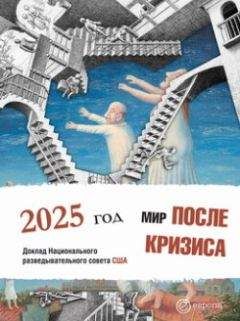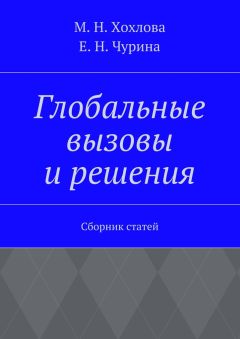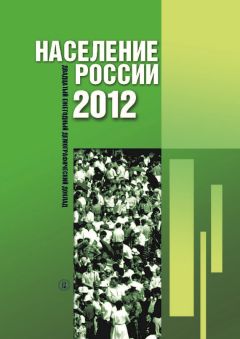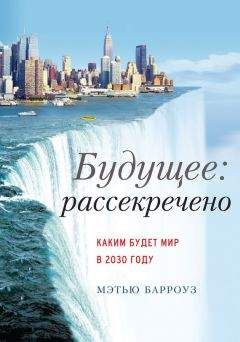Oscar Wilde - The Happy Prince and Ohter Tales
So he returned to his room (и он вернулся в свою комнату) and pulled out a great dusty book (и вытащил огромную запыленную книгу; dust — пыль), and began to read (и начал читать).
logic ['lOdζik] true [tru:] metaphysics ["metə'fiziks]
“What I a silly thing Love is,” said the Student as he walked away. “It is not half as useful as Logic, for it does not prove anything, and it is always telling one of things that are not going to happen, and making one believe things that are not true. In fact, it is quite unpractical, and, as in this age to be practical is everything, I shall go back to Philosophy and study Metaphysics.”
So he returned to his room and pulled out a great dusty book, and began to read.
The Selfish Giant
Every afternoon (каждый день; afternoon — время после полудня /до заката/), as they were coming from school (когда они возвращались: «шли» из школы), the children used to go and play in the Giant’s garden (дети привыкли заходить поиграть в сад Великана; used to do smth. — иметь в прошлом обыкновение делать что-либо).
It was a large lovely garden (это был большой красивый сад; love — любовь; lovely — красивый, очаровательный), with soft green grass (с мягкой зеленой травой). Here and there over the grass (там и здесь над травой) stood beautiful flowers like stars (возвышались: «стояли» прекрасные цветы, похожие на звезды; to stand (stood) — стоять, находиться), and there were twelve peach-trees (и там росли: «были» двенадцать персиковых деревьев; peach — персик) that in the spring-time (которые весенней порой: «по весне»; time — время; сезон, пора) broke out into delicate blossoms (покрывались нежными цветками; to break (broke, broken) out — выламывать; покрываться; blossom — цвет, цветение; цветок) of pink and pearl (розового и жемчужного /цвета/), and in the autumn bore rich fruit (и по осени приносили богатый /урожай/ плодов; to bear (bore, born) — переносить, перевозить; приносить плоды). The birds sat on the trees (птицы сидели на этих деревьях; to sit (sat)) and sang so sweetly (и пели так благозвучно; sweet — сладкий, свежий; мелодичный, благозвучный) that the children used to stop their games (что дети, бывало, прекращали свои игры; to stop — останавливать, задерживать; приостанавливать, прекращать) in order to listen to them (для того, чтобы послушать их; order — порядок, in order to — для того чтобы). “How happy we are here (как мы счастливы здесь)!” they cried to each other (кричали они друг другу).
giant ['dζaiənt] delicate ['delikit] fruit [fru:t]
Every afternoon, as they were coming from school, the children used to go and play in the Giant’s garden.
It was a large lovely garden, with soft green grass. Here and there over the grass stood beautiful flowers like stars, and there were twelve peach-trees that in the spring-time broke out into delicate blossoms of pink and pearl, and in the autumn bore rich fruit. The birds sat on the trees and sang so sweetly that the children used to stop their games in order to listen to them. “How happy we are here!” they cried to each other.
One day the Giant came back (однажды вернулся Великан; one day — однажды, в один прекрасный день /в сказках/; to come (came, come)). He had been to visit his friend (он навещал: «был, чтобы навестить» своего друга; to have been — посещать, бывать) the Cornish ogre (корнуэльского великана-людоеда), and had stayed with him (и прогостил он у него; to stay — оставаться, не уходить; гостить) for seven years (семь лет). After the seven years were over (после того = когда семь лет истекли; to be over — окончиться, завершиться) he had said all that he had to say (он рассказал все, что он мог: «имел» рассказать; to say — говорить, сказать), for his conversation was limited (так как он не был разговорчивым: «его разговор был ограничен»; to limit — ограничивать, ставить предел), and he determined (и он твердо решил; to determine — определять, устанавливать; решаться, принимать решение) to return to his own castle (возвратиться в свой /собственный/ замок). When he arrived (когда он прибыл/приехал) he saw (он обнаружил: «увидел»; to see (saw, seen)) the children playing in the garden (что в /его/ саду играют дети: «детей, играющих в саду»).
“What are you doing here (что вы здесь делаете)?” he cried (крикнул он; to cry) in a very gruff voice (очень хриплым голосом; gruff — грубоватый, резкий; хриплый /о голосе/), and the children ran away (и дети разбежались/убежали).
ogre ['əυgə] castle ['kα:s(ə)l] voice [vOis]
One day the Giant came back. He had been to visit his friend the Cornish ogre, and had stayed with him for seven years. After the seven years were over he had said all that he had to say, for his conversation was limited, and he determined to return to his own castle. When he arrived he saw the children playing in the garden.
“What are you doing here?” he cried in a very gruff voice, and the children ran away.
“My own garden (мой собственный сад) is my own garden (это мой собственный сад),” said the Giant (сказал Великан); “any one can understand that (это каждый может понять), and I will allow nobody (и я не позволю никому; to allow — позволять, разрешать) to play in it (играть в нем) but myself (кроме себя самого; but — за исключением, кроме).” So he built a high wall (и он построил высокую стену; to build (built)) all round it (со всех сторон вокруг него = обнес его /сад/ высокой стеной; all around — повсюду), and put up a notice-board (и установил доску с объявлением; to put up — поднимать; строить, возводить; notice — извещение, объявление; board — доска).
TRESPASSERS WILL BE PROSECUTED (Вход Строго Воспрещен)
(trespassers will be prosecuted — нарушители будут преследоваться; trespasser — правонарушитель, лицо, нарушающее право владения; to prosecute — вести, проводить; преследовать в судебном или уголовном порядке)
He was a very selfish Giant (он был очень эгоистичным Великаном).
notice-board ['nəυtisbO:d] trespasser ['trespəsə] prosecute ['prOsikju:t]
“My own garden is my own garden,” said the Giant; “any one can understand that, and I will allow nobody to play in it but myself.” So he built a high wall all round it, and put up a notice-board.
TRESPASSERSWILL BEPROSECUTED
He was a very selfish Giant.
The poor children had now nowhere to play (бедным детям теперь негде было играть). They tried to play on the road (они попытались играть на дороге; to try — пытаться, стараться), but the road was very dusty (но дорога была очень пыльной, dust — пыль) and full of hard stones (и полна жестких камней; full — полный, наполненный; hard — твердый, жесткий), and they did not like it (и она /дорога/ им не понравилась). They used to wander round the high wall (они, бывало, бродили вокруг высокой стены; to use — употреблять, пользоваться; to use + инфинитив другого глагола — иметь /в прошлом/ обыкновение делать что-либо) when their lessons were over (когда /их/ уроки были окончены = после уроков; to be over — окончиться, завершиться), and talk about the beautiful garden inside (и разговаривали о красивом саде за забором: «внутри»). “How happy we were there (как счастливы мы были там),” they said to each other (говорили они друг другу).
nowhere ['nəυweə] dusty ['dλsti] wander ['wOndə]
The poor children had now nowhere to play. They tried to play on the road, but the road was very dusty and full of hard stones, and they did not like it. They used to wander round the high wall when their lessons were over, and talk about the beautiful garden inside. “How happy we were there,” they said to each other.
Then the Spring came (затем пришла Весна), and all over the country (и по всей стране) there were little blossoms (появились: «были» маленькие цветы) and little birds (и маленькие птички). Only in the garden of the Selfish Giant (только в саду Великана-Эгоиста: «эгоистичного великана») it was still winter (все еще была зима). The birds did not care to sing in it (птички не хотели петь в нем; to care — заботиться, беспокоиться; иметь желание, хотеть) as there were no children (так как там не было детей), and the trees forgot to blossom (и деревья забыли расцвести; to forget (forgot, forgotten)). Once a beautiful flower (однажды прекрасный цветок) put its head out from the grass (поднял свою головку над травой: «из травы»; to put out — вытягивать, высовывать), but when it saw the notice-board (но когда он заметил: «увидел» доску с объявлением; to see (saw, seen)) it was so sorry for the children (ему так стало жаль детей; sorry — огорченный, сожалеющий) that it slipped back into the ground again (что он снова вернулся: «скользнул» обратно под землю; to slip — скользить, двигаться тихо), and went off to sleep (и забылся сном; to go off — уходить, уезжать; впадать в какое-либо состояние).
care [keq] grass [grα:s] ground [graυnd]




